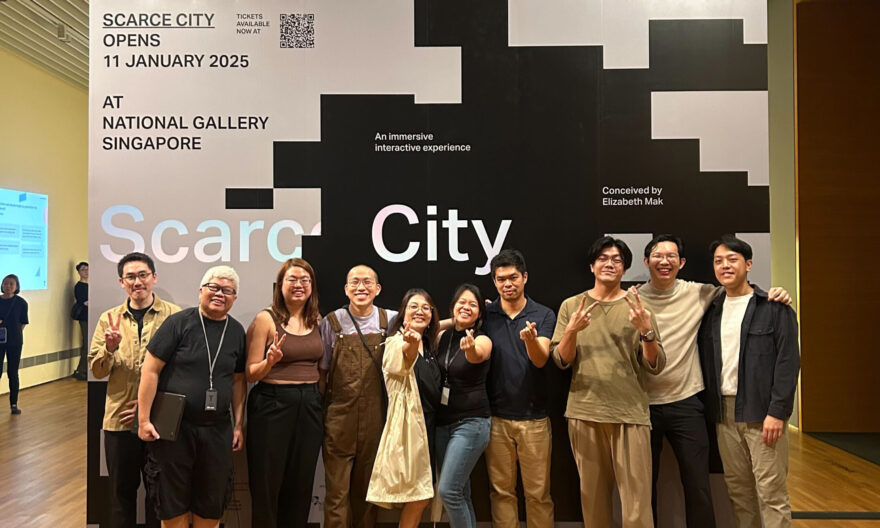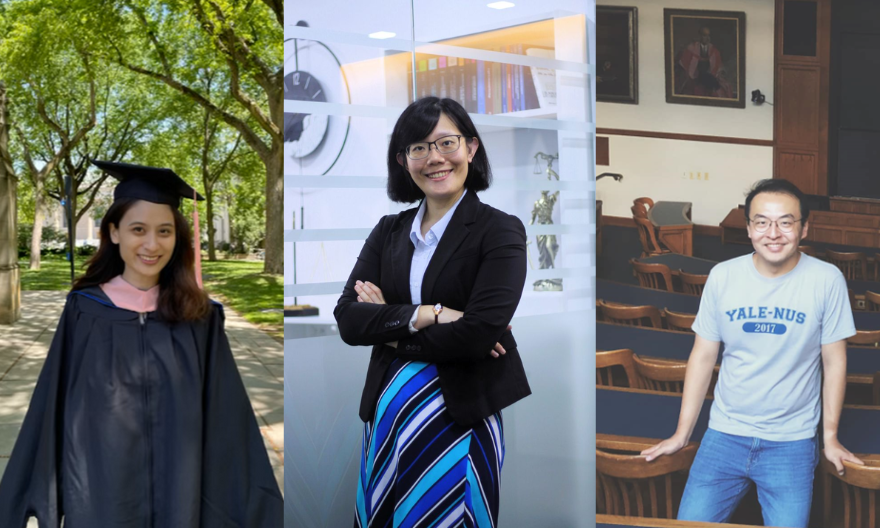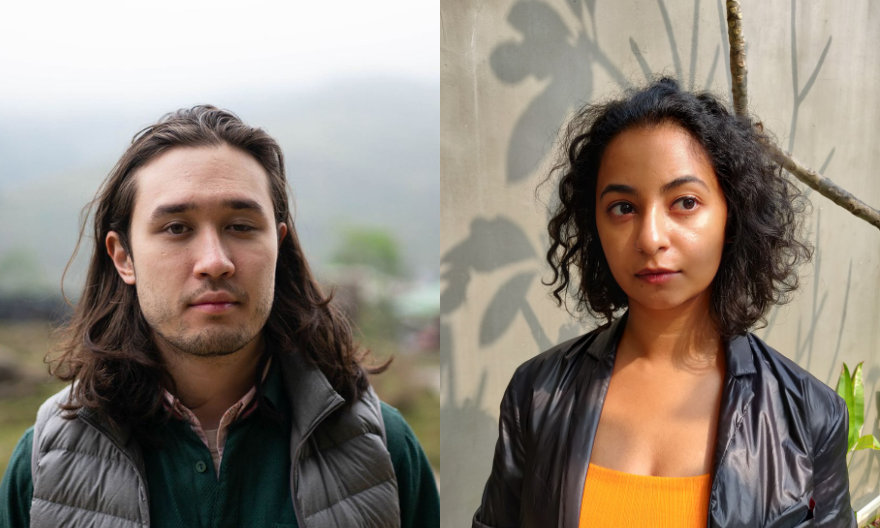Yale-NUS’ first Quad Fellow
Stanley Tan’s doctoral degree journey in the Yale School of The Environment
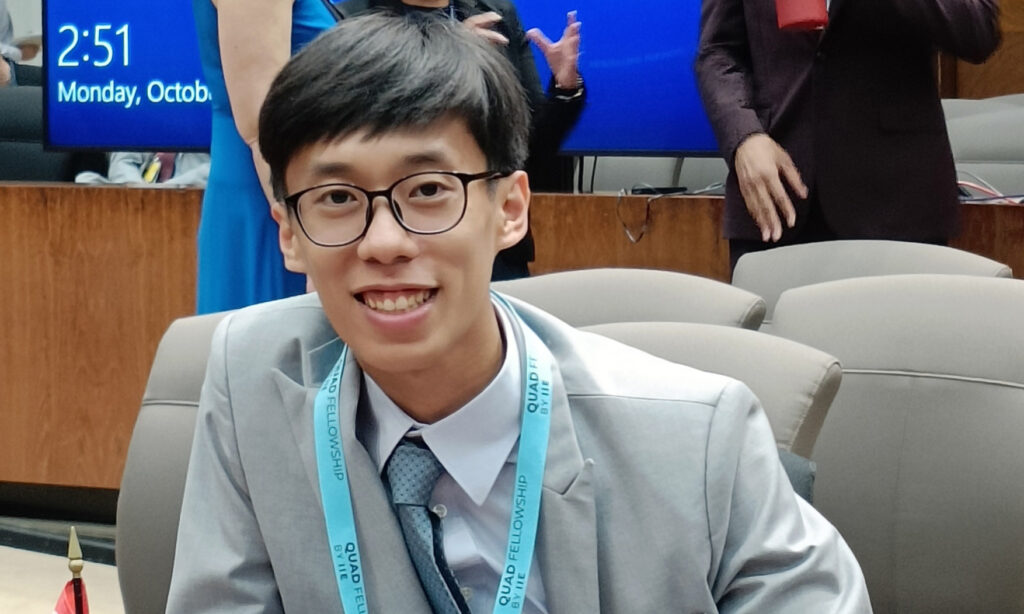
Yale-NUS alumnus Stanley Tan (Class of 2024) has been named as a 2024 Quad Fellow. Stanley who graduated from Yale-NUS with a degree in Bachelor of Science with Honours in Environmental Studies, is the first Yale-NUS student to receive this fellowship. Stanley is now pursuing a Doctor of Philosophy (PhD) in Environment at the Yale School of the Environment (Combined Doctoral Degree with New York Botanical Garden), focusing on using experiments and computational genomics to explore the interactions between plants, microorganisms, and insects in tropical forests.
The Quad Fellowship supports master’s and doctoral students pursuing studies in Science, Technology, Engineering and Mathematics (STEM) in the United States. Initially supporting students from the four Quad countries – Australia, India, Japan, and the United States, this is the first year the Fellowship has expanded its recipients to include students from Southeast Asia. The fellowship, awarded by the Institute of International Education (IIE), aims to build connections amongst the next generation of scientists by supporting academic excellence and fostering cross-cultural understanding and collaboration across multiple participating countries. During the Fellowship, Quad Fellows will have the opportunity to network and engage in programming with accomplished minds in STEM, government, and society.
Currently, Stanley also holds a Lewis B Cullman Fellowship, offered jointly by the Yale School of Environment (YSE) and New York Botanical Garden (NYBG) in the combined Doctoral Degree Program, which trains biological scientists to use an interdisciplinary approach to solving problems associated with tropical environments. Through his research, he hopes to understand how such interactions influence plant diversity and ecosystem services, especially under the increasing stress of climate change and human activities.
We interview Stanley Tan to find out more about his academic journey after graduating from Yale-NUS.
============
What is it like learning in the Yale School of the Environment (YSE) with the support of the New York Botanical Garden (NYBG)?
At YSE, education is uniquely community-based. We learn from prolific environmental scholars and practitioners and alongside Master’s students, many of whom are mid-career professionals with diverse backgrounds. I particularly enjoy listening to their experiences and perspectives on bridging science, policy, and practice to address environmental challenges. The access to the New York Botanical Garden’s collections and curators has been incredibly helpful, giving me the essential skills in plant identification and genomics needed for my research.
How has being a Quad fellow facilitated your research process and academic pursuit?
Apart from the financial award, the Fellowship provides access to the community of Quad Fellows (including Senior Fellows) and a network comprising leaders in government, science, and society in the Quad and Southeast Asian countries. I believe the community and networks are incredibly valuable. I have learnt that to translate research into positive societal impact, scientists and scholars must actively engage in meaningful conversations with other stakeholders to clearly understand the problems at hand and evaluate the feasibility of their proposed solutions. The Fellowship provides that network of stakeholders and fosters dialogues that nurture interdisciplinary research collaborations and solutions.
I am deeply grateful to be among the inaugural cohort of Quad Fellows from Southeast Asia. There is immense potential and enthusiasm for collaboration between Fellows from the Quad countries and Southeast Asia to develop international solutions for pressing global issues.
How has your education at Yale-NUS contributed to your academic journey today?
My education at Yale-NUS provided rigorous training in ecology, microbiology, and statistics, essential for my research at YSE. Opportunities for undergraduate research, including a capstone project, prepared me for a doctoral degree. The liberal arts and sciences education helped me navigate different disciplines and understand how my research can inform policy and decision-making. My faculty mentors, including professors Angel Hsu, Anthony Medrano, Linda Puth, Michiel van Breugel, and Ying Chang, have been incredibly supportive in my journey to pursue a PhD at YSE.
Where do you see yourself after pursuing this PhD?
Currently, I am keeping my options open. I may pursue a postdoctoral position in academia or join global institutions like the United Nations or non-profit organisations. My goal is to find roles that balance my passion for scientific research with the ability to make tangible positive impacts on society and the natural environment.
=========
This October, Stanley had the opportunity to attend and participate in the 2024 Quad Fellowship Summit held in Washington, DC, organised by IIE. This summit included dialogues led by various government leaders globally, professionals from the academic and private sectors. As a Quad Fellow, he represented Yale University and Southeast Asia, sharing more about his research and had the opportunity to “explore collaborative synergies across various disciplines and sectors.”
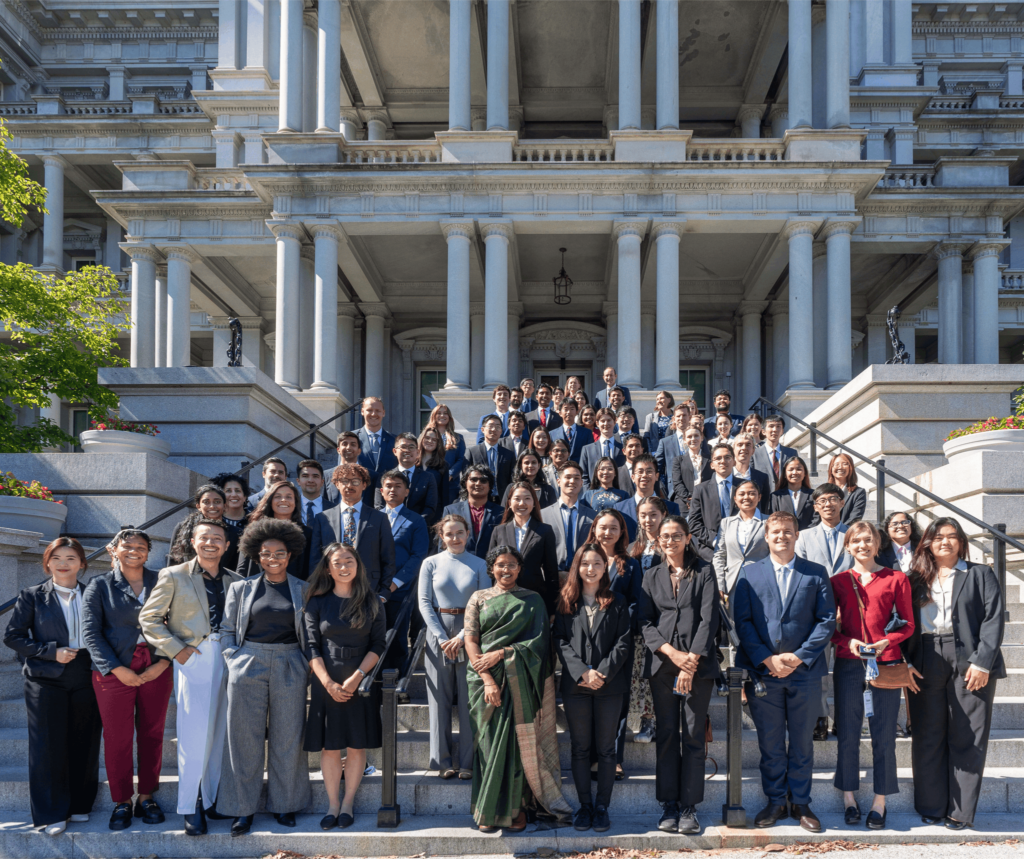
Stanley felt honoured to be part of the Summit and appreciated the opportunity to engage with top policymakers and business leaders at such a significant global and political event. “From attending similar events in the past, I have found that engaging with these leaders can broaden my perspectives on issues I care about and help build important networks for my future endeavours. Overall, I believe attending the Quad Summit will be critical to advancing the role of STEM research in solving global challenges such as epidemics and climate change.”

